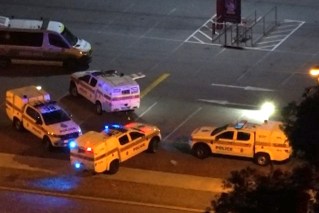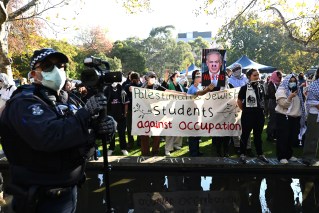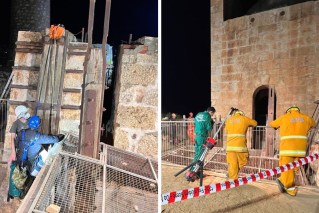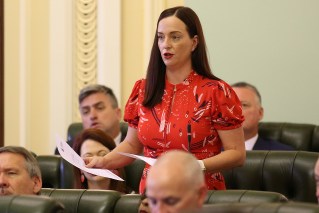With 45 women dead this year, the ‘shadow pandemic’ of domestic violence is getting worse

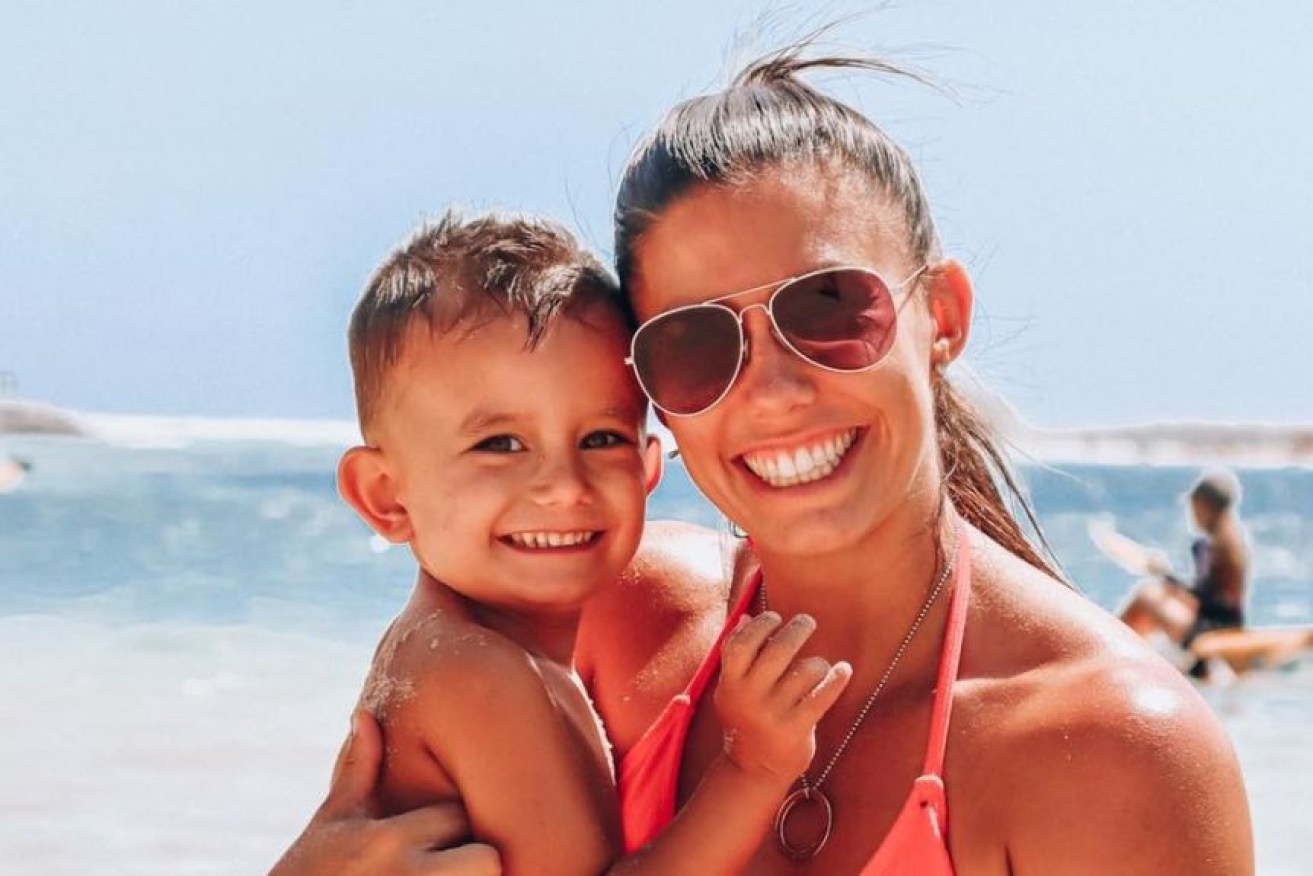
The murder of Hannah Clarke and her children shocked the nation, but domestic violence experts say more needs to change. Photo: Facebook
Workers on the front line of Australia’s domestic violence response say more women will die if the system isn’t changed to target and manage high-risk men.
The warning come as gender-based violence makes headlines again this week with the alleged murder of 23-year old Celeste Manno at the hands of her male co-worker in Melbourne.
Ms Manno was the 45th known victim of violence against women this year, according to feminist activist group Destroy the Joint, who keep a tally.

Celeste Manno died in her Mernda home earlier this week. Photo: Facebook
CQU academic Brian Sullivan has spent his career studying men’s violence and running court-ordered rehabilitation programs.
Dr Sullivan warned that Australia will soon mourn another Hannah Clarke – a woman and her children brutally murdered by her husband in a manner so horrific its stunned the world – if the nation’s response to domestic violence is not overhauled.
45.
45 too many.
RIPhttps://t.co/kC4rZnteud#CountingDeadWomen pic.twitter.com/Fk6xlNLuyb
— Destroy The Joint (@JointDestroyer) November 16, 2020
“We won’t have to wait a few months, we’re nearly up to two women [killed by men] a week,” he told The New Daily.
Dr Sullivan said the most concerning thing he had noticed in his work was that gender-based abuse was starting younger, with boys being violent to their mothers and girlfriends.
“There’s always a need for more services and more intervention and more resources,” he said.
”But if we don’t take this seriously and we don’t finance it, the problem isn’t going to go away. I think it’ll get worse.”

Rates of domestic violence have skyrocketed during the pandemic. Photo: AAP
To address the issue properly, police and the courts needed to take high-risk offenders more seriously, Dr Sullivan said.
“When I work with men in a group I always say, ‘there is high risk, higher risk, and highest risk’. It’s hard to determine who is who,” he said.
Currently, though, the intensity of intervention doesn’t increase when the risk is increased.
Dr Sullivan said there should be a special task force to deal with high-risk perpetrators, more funding to run longer programs to work with men on stopping the violence and a dedicated education initiative to teach respectful relationships from a young age.
“I’m just concerned what is happening here is that it is business as usual,” he said.
The status quo continues and our fatality rates are as high as they were last year, and they’re getting worse.
“Unless we do something different and more coordinated, we won’t be able to address this problem.”
Changing a flawed system
University of Technology Sydney law lecturer Jane Wangmann researches intimate partner violence and has worked in the sector for 20 years.
There has been “immense change” in the way police and the legal system responds to domestic violence, but “some of that change has been slow … and there are some things we need to do more about”, Dr Wangmann said.
“We need to do more about keeping the focus on the perpetrator and recognising the impact it has on children,” she said.
This is where the debate about coercive control comes in.
Coercive control is an insidious form of abuse, Dr Wangmann explained.
It can involve isolation, deprivation, monitoring or controlling finances, social media accounts and children.
It’s also a set of red flags that abuse could be escalating towards a physically violent attack.
People who work in DV response tell horror stories of coercive control and how Australia’s legal system relates to it, from judges throwing out cases because ‘he didn’t physically harm her’ to victims who make it to shelters just in time, saying they never took action because they ‘didn’t realise it was abuse’.

Domestic violence impacts women across Australia. Photo: AAP
Now, a coalition of advocacy groups across the nation, including Doctors Against Violence Towards Women, Women’s Safety NSW, White Ribbon Australia, Women’s Community Shelters, and journalist Jess Hill, are running a campaign to have state and federal judges make coercive control a criminal offence.
Dr Wangmann said the law can fail to respond to domestic violence in an adequate way.
“The thing we know about the legal system is that is a very blunt tool, and it hasn’t been good at responding to other harms, especially for women who experience disadvantages,” she said.
“We need to understand that DV is more than one incident, and even if the police were to charge for a single assault, we would want them to come to that incident and respond holistically, even if they only lay a single charge.”
2020’s ‘shadow pandemic’
As COVID-19 sent communities into lockdown, researchers and advocated warned this would have horrid consequences for those suffering violence at home.
Executive director of UN Women Phumzile Mlambo-Ngcuka labelled violence against women the “shadow pandemic” of 2020.
“Confinement is fostering the tension and strain created by security, health and money worries. And it is increasing isolation for women with violent partners, separating them from the people and resources that can best help them,” Ms Mlambo-Ngcuka said.
For many services in Australia, lockdown was the calm before the storm.
Women’s Community Shelters chief executive Annabelle Daniel said during lockdown NSW services went eerily quiet, before experiencing unprecedented demand as the state opened up.
“We have seen our referrals go through the roof. It’s getting really busy,” Ms Daniel said.
Women are reporting abuse that has increased in severity, and a disturbing level of child abuse.”
Meeting this demand without increased funding was a tricky task, as COVID-19 presented different challenges, Ms Daniel explained.
Staff are also bracing for another wave of women seeking their services when the federal government cuts JobSeeker.
“I think from my point of view, the next 6 to 12 months are critical because one of the key challenges is that the coronavirus supplements are being rolled back,” Ms Daniel said.
“And when incomes decrease, when income support is decreased, we see an increase in our services.
“The reason is that with women and kids, DV is the primary cause of homelessness. It’s all intertwined.”
Family and domestic violence support services:
- 1800 Respect National Helpline: 1800 737 732
- Women’s Crisis Line (NSW): 1800 656 463
- Safe Steps Crisis Line (Vic): 1800 015 188
- Men’s Referral Service: 1300 766 491
- Lifeline (24-hour crisis line): 131 114
- Relationships Australia: 1300 364 277

